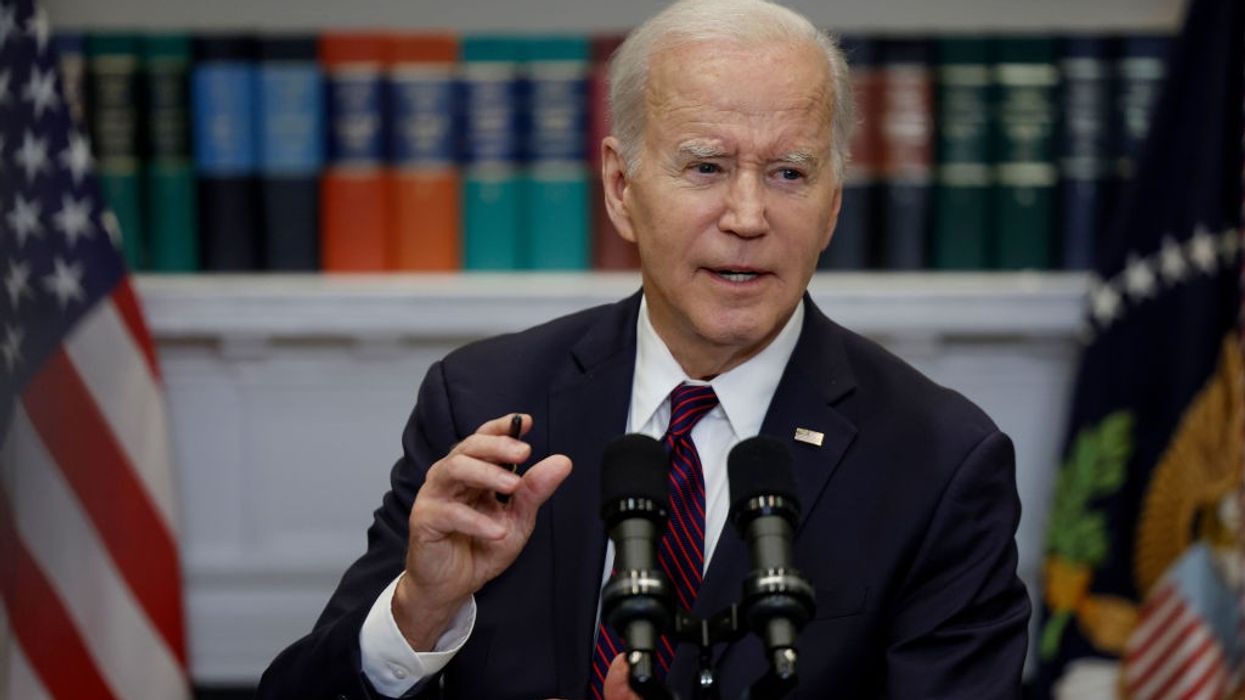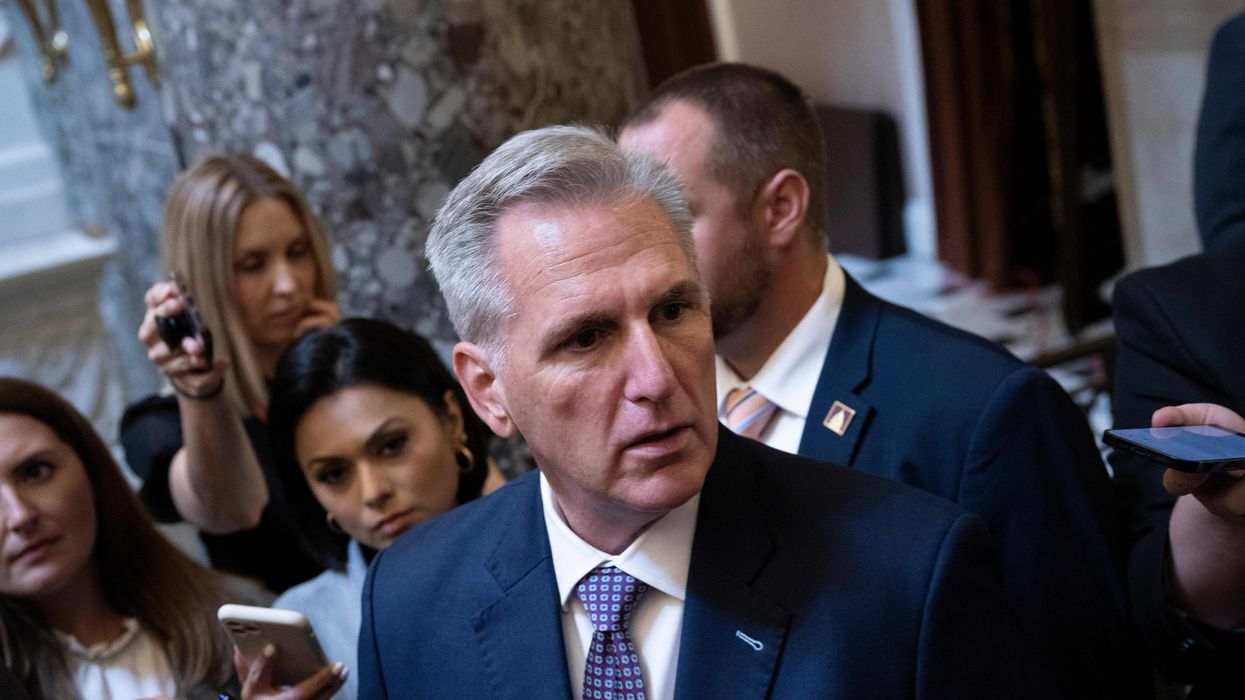House Speaker Kevin McCarthy (R-Calif.) "was well aware" that the CR wouldn't pass the Democrat-controlled upper chamber "but was hoping House passage would be a show of strength that would force a response from the Senate and potentially shift responsibility for a shutdown across the Rotunda,"
noted The New York Times.
However,
Politico reported Monday, "as details of the deal hashed out by leaders of the Main Street Caucus and House Freedom Caucus trickled out, a bevy of conservative hardliners piped up with various versions of 'Hell No'." At least a dozen far-right House members have voiced their opposition, with some suggesting they won't support any CR.
Congressional Progressive Caucus Chair Pramila Jayapal (D-Wash.) wrote on social media Monday that "we cannot allow Kevin McCarthy and his radical posse to throw yet another tantrum at the expense of poor and working Americans. Period."
The 87-member ProsperUS coalition
said in a statement Monday that "these last-ditch efforts to slash critical investments in workers and families are deeply unpopular and doomed to fail. Extreme House GOP members should accept reality: The majority of Congress is with the American people in rejecting hostage-taking and painful and irresponsible cuts."
The coalition also noted that the proposed CR
betrays the Fiscal Responsibility Act, the bipartisan debt ceiling deal Biden and McCarthy negotiated earlier this year, as House Republicans nearly forced an economically catastrophic U.S. default.
"The House majority should set aside this latest failed proposal and allow the full House to vote on government funding bills at or above the floor set in the bipartisan debt limit deal," ProsperUS argued. "Anything less would be a clear step backward for our economy and hurt the most vulnerable communities we represent."
In a series of posts on X, formerly Twitter, Center on Budget and Policy Priorities president Sharon Parrott similarly stressed that "the proposed continuing resolution backed by Speaker McCarthy is trying to force a path to deep cuts that were rejected in the debt ceiling deal he agreed to with President Biden earlier this year."
The GOP proposal would slash funding for federal programs—including on childcare, education, environmental protection, food assistance, medical research, and transportation—for 30 days, but that could be dragged out much longer. As Parrott explained, "The nondefense cuts will create some near-term challenges, but more importantly, once a CR is in place, it is likely to be extended until final appropriations bills are complete—which is sure to take more than a month."
"Congress needs to pass a CR that allows the government to continue operations until funding bills are done, addresses near-term needs that cannot wait for final appropriations bills, and doesn't try to renegotiate the debt ceiling agreement," she asserted. "The public deserves a government that stays open to deliver services people count on and policymakers who negotiate agreements in good faith and govern by a theory other than brinkmanship."
In an apparent reference to Sen. Ron Johnson (R-Wis.) blocking a "minibus" packaging three spending bills, Parrott also said that "last week's hiccup notwithstanding, the Senate has demonstrated that reasonable funding bills crafted under the basic framework of the debt ceiling agreement can garner broad bipartisan support."
Senate Appropriations Committee Chair Patty Murray (D-Wash.) on Monday moved to suspend a rule invoked by Johnson—which will require 67 votes later this week.
"This is an effort to move forward on the minibus, and keep the appropriations process on track here in the Senate," said Senate Majority Leader Chuck Schumer (D-N.Y.) on Monday. "It's unfortunate that one member—who does not represent the views of most senators—prevented us from moving forward last week."
"But I believe a majority of senators want to keep moving forward. Our Republican colleagues have asked for regular order and we have worked with them to let that happen," he added, thanking not only Murray but also Susan Collins (R-Maine), the top Republican on the Senate Appropriations Committee, who last week called out Johnson.
Schumer also took aim at Republicans in the lower chamber for "what they called a deal for a CR but in reality reads like a hard-right screed," declaring that the proposal "can be boiled down to two words: slapdash, reckless. Slapdash because it is not a serious proposal for avoiding a shutdown, and reckless because if passed it would cause immense harm to so many priorities that help the American people."
"To his credit, the speaker knows a shutdown would be a terrible outcome. When I spoke with him in late July, we had a very encouraging conversation about the need for bipartisanship to avoid a shutdown. We both recognized that a bipartisan CR would be the way forward," Schumer added. "Two months later, a bipartisan CR is still the only answer for avoiding a government shutdown. I urge Speaker McCarthy, as well as reasonable House Republicans, to resist the 30 or so extremists within their ranks who seem dead-set on provoking a crisis."



